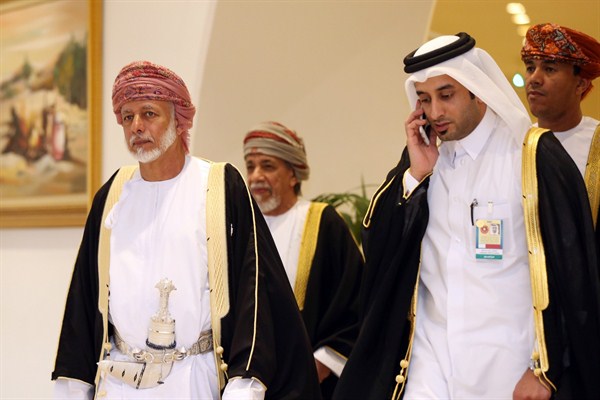The dramatic crisis pitting tiny, oil-wealthy Qatar against regional powers Saudi Arabia, the United Arab Emirates and Egypt raises the question of the survivability of the Gulf Cooperation Council, the regional organization of six Gulf states. Most likely, Qatar will make some concessions to return to the fold. But the GCC will end up weaker as a result, and Riyadh’s ambition to push for deeper unity of effort among the six states will not be realized.
The political assault against Qatar has seen Saudi Arabia, the UAE and other states break diplomatic ties with Doha, as well as close their land borders and airspace to the country. It is the worst crisis for the GCC since its creation in 1981. At the time, the effort to bring together the six Gulf countries—Saudi Arabia, the UAE, Kuwait, Bahrain, Oman and Qatar—into a political and economic alliance was a reaction to sources of regional upheaval, including the Iranian Revolution, the Israeli-Egyptian peace treaty and the resulting isolation of Egypt. It was also intended to have a security component, with a defense council to coordinate military matters.
The GCC has always looked better on paper than in reality. Each of the Gulf states has preferred to retain its special security ties to Western powers; rivalries among the members’ respective royal families remain acute; and each state has tried to develop a distinct economic development strategy and, more recently, a unique brand as a global actor, from the roles of their national airlines to hosting international sports events to their philanthropic work.

